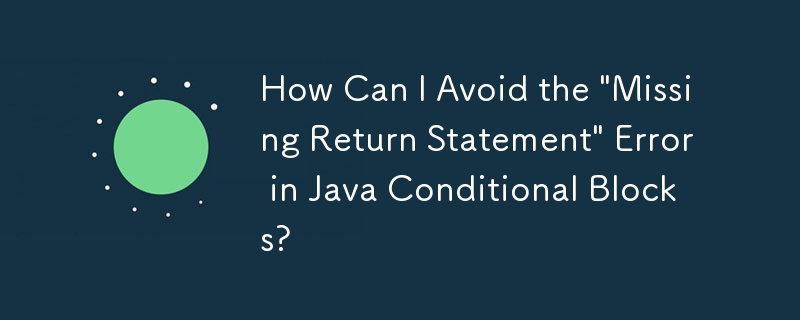Home >Java >javaTutorial >How Can I Avoid the 'Missing Return Statement' Error in Java Conditional Blocks?
How Can I Avoid the 'Missing Return Statement' Error in Java Conditional Blocks?
- Barbara StreisandOriginal
- 2024-12-26 14:38:101036browse

Avoiding "Missing Return Statement" in Conditional Blocks
When using conditional statements (if-else, loops), it's essential to understand the requirement for return statements. As observed in the provided method, the compiler flags an error for missing a return statement if it's only present within an if block.
Reason for Required Return Statements:
In Java, every method must return a value of the specified type declared in its header. This is true even if the method body contains conditional statements. Without a return statement after each conditional block, the compiler cannot guarantee that a value will always be returned, even if no execution path can reach the end of the method without returning.
Correcting the Code:
To resolve the issue, a return statement must be placed after each conditional block, even if it returns null or uses other means to return a value (e.g., System.out.println).
Example:
public String myMethod() {
if (condition) {
return x;
} else {
return null; // Or use System.out.println() instead
}
}
However, an exception to this rule exists when using if-else blocks where both branches have return statements. In such cases, the compiler can infer that either branch will provide a return value, making an additional return statement at the end unnecessary.
Exception:
if (condition) {
return true;
} else {
return false;
}
By understanding the necessity and correct placement of return statements in conditional blocks, you can prevent the "Missing return statement" error and ensure your code operates as intended.
The above is the detailed content of How Can I Avoid the 'Missing Return Statement' Error in Java Conditional Blocks?. For more information, please follow other related articles on the PHP Chinese website!

